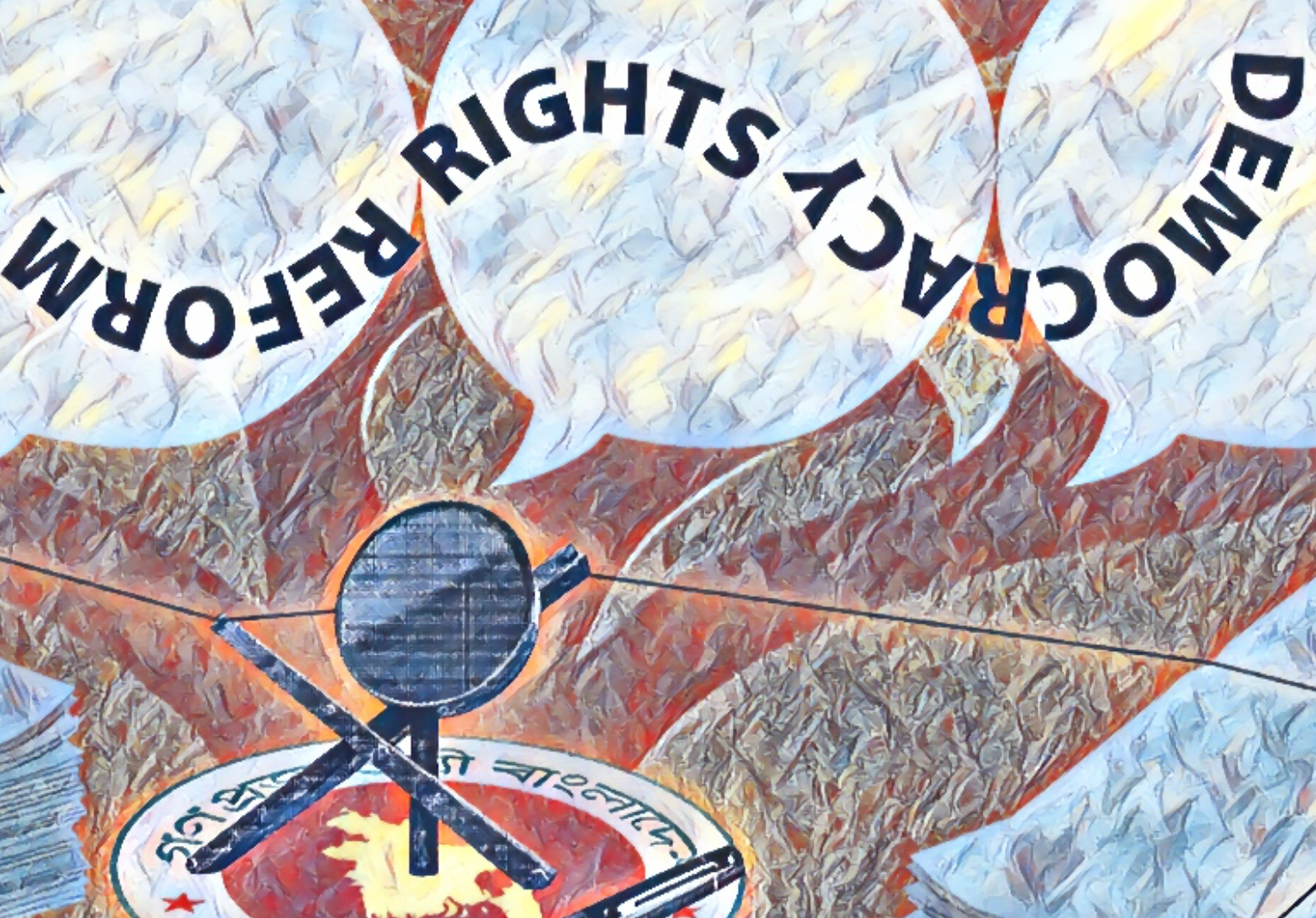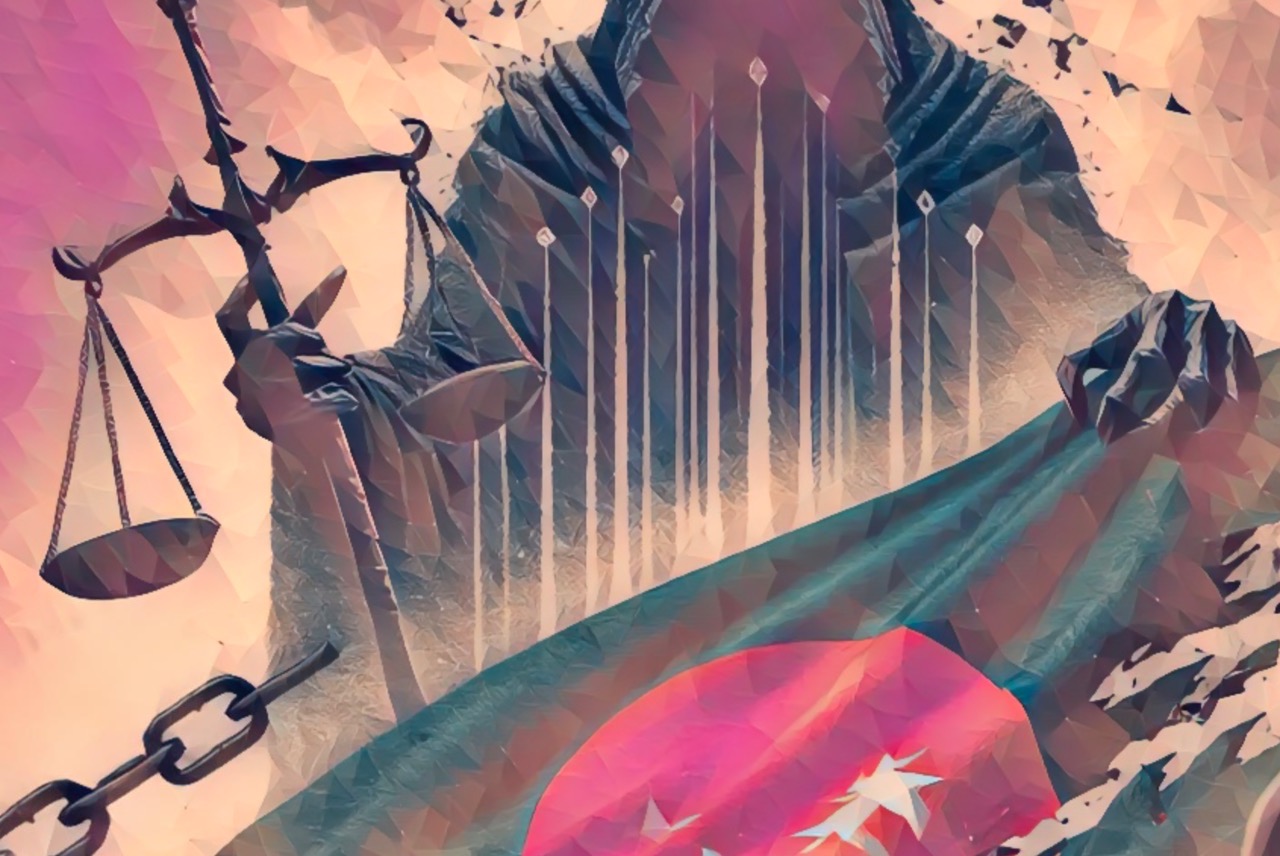Cultural intimidation and the Eid holidays that exposed a nation’s fragility

This year’s extended Eid holidays in Bangladesh offered a time for celebration as well as a moment to reflect on the deeper values of sacrifice and moral responsibility.
Yet, scattered incidents across the country cast a troubling shadow over the festivities and beneath the surface of joy emerged a chilling reality–a growing threat to the pluralistic fabric that has long defined the nation.
What began with the attack on a historic cultural site quickly unraveled into a broader tapestry of intimidation and suppression, painting an alarming picture of a society increasingly constrained by narrow interpretations of faith and morality.
The news that Rabindranath Tagore’s Kacharibari in Shahjadpur, Sirajganj, had been attacked and vandalized was distressing enough. This was more than a property damage; it was an assault on a vital space of cultural memory, a potent symbol of Bangladesh's diverse heritage.
The subsequent indefinite ban on visitors to this historic site only amplified the unease. Yes, the government has arrested two persons in connection with the vandalism but the incidents didn't stop there. Across the country, similar unease prevailed because of a few unwanted incidents.
In Tangail's Kalihati upazila, the screening of a film ironically titled "Tandav" was abruptly halted. This happened because of a religious protest, spearheaded by local clerics and their supporters.
Their claims–that such cultural activities could harm religious teachings and encourage anti-social behavior–were a thinly veiled attempt to impose a singular moral code. The local authorities' inaction in the face of this intimidation was a tacit endorsement, allowing the voice of creativity to be stifled not by violence, but by fear and silence.
Meanwhile, in Sylhet’s Companiganj, the picturesque Utmachhara became the stage for another form of confrontation. Local leaders took it upon themselves to discourage tourists, citing "moral order" and alleged disrespect through alcohol consumption and obscenity.
A viral video captured a religious leader unequivocally declaring Utmachhara "not a tourist spot" and demanding people refrain from uploading pictures.
While this group later attempted to soften their stance, claiming they were merely "inviting" people toward religion, the original intent was clear: a warning, subtly cloaked as an invitation, against any activity deemed outside their narrow interpretation of acceptable conduct.

The fault in our apparent
acceptance
The most harrowing development of all, however, unfolded in Manikganj, where Shakil Ahmed, a final-year student of Dhaka University’s Faculty of Fine Arts, took his own life.
His tragic act was the culmination of relentless threats, both online and in person, after he was labeled an atheist for a social media comment. The intimidation followed him home, tormenting his family and pushing Shakil to the brink.
His final Facebook post, a desperate plea of innocence expressing love for his family and fear of bringing them dishonor, paints a grim picture of the immense psychological burden he carried.
The weight of societal judgment and the erosion of his dignity proved too much to bear. He hanged himself, leaving behind shattered parents and a village that chose silence over compassion.
What ties these stories together is not just their proximity in time, but a common, insidious thread: fear, intimidation, and the unchecked spread of what can be called as “nonviolent yet religious extremism.”
Whether through organized marches, moral policing, or public shaming, there is a palpable shift in how religious rhetoric is being weaponized to suppress culture, silence dissent, and dictate personal freedoms.
At the heart of this alarming trend lies a glaring absence–that of a strong, principled state response. The interim government’s lack of strong action and its apparent inability or unwillingness to push back against these encroaching forces, is creating a dangerous vacuum.
Into this vacuum step groups and individuals who arrogantly assume the power to define who belongs and who does not, what is acceptable and what is forbidden.
We are witnessing a steady normalization of the idea that a particular brand of religiosity can override civil rights, that artistic and intellectual freedom poses a threat to morality, and that being different—whether in belief, behavior, or background—is inherently dangerous.
This is not the Bangladesh we claim to be proud of. This is not the land of Rabindranath and Nazrul, nor of Lalon or Shah Abdul Karim. The people of Bangladesh, by nature and history, have long rejected extremism.

A crossroads for Bangladesh
Our traditions are vibrant and diverse. Our rivers carry more than water–they carry stories of inclusion, resilience, and unwavering resistance to domination.
No single ideology has ever succeeded in permanently shaping Bangladesh. Every attempt to silence its people, to dictate uniformity, has ultimately been met with resistance.
The popular uprising of July and August was a powerful demonstration of that very spirit–a clear signal that the people will not remain silent when pushed too far.
Yet, it now appears that the very government that rode that wave of public frustration is backing away from its fundamental responsibilities.
Just when we might have thought the ground couldn't shift further, another disturbing discourse began to rise: questioning whether a song written by "Hindu Rabindranath Tagore" can be our national anthem.
The timing of this new assault on our national identity is no coincidence.
When cultural shrines are attacked, when tourists are turned away from natural beauty, when a student is hounded to death for a social media comment, and when the poet who penned the nation’s song is being undermined–we must ask: who benefits from this sustained campaign? And who is staying silent?
There is no denying the fact that Bangladesh stands at a critical crossroads and the country must find the courage to stand firm. This requires not merely empty statements or selective enforcement of law, but a clear, unwavering commitment to pluralism, justice, and dignity for all.
It demands not only legal protections but also strong cultural leadership–a reaffirmation of the immutable idea that no one group, no matter how loud, can be allowed to define the moral compass of an entire nation.
The very soul of Bangladesh hangs in the balance.
—-
Siam Sarower Jamil is a PhD Researcher at University of Delhi. He can be reached at [email protected]

